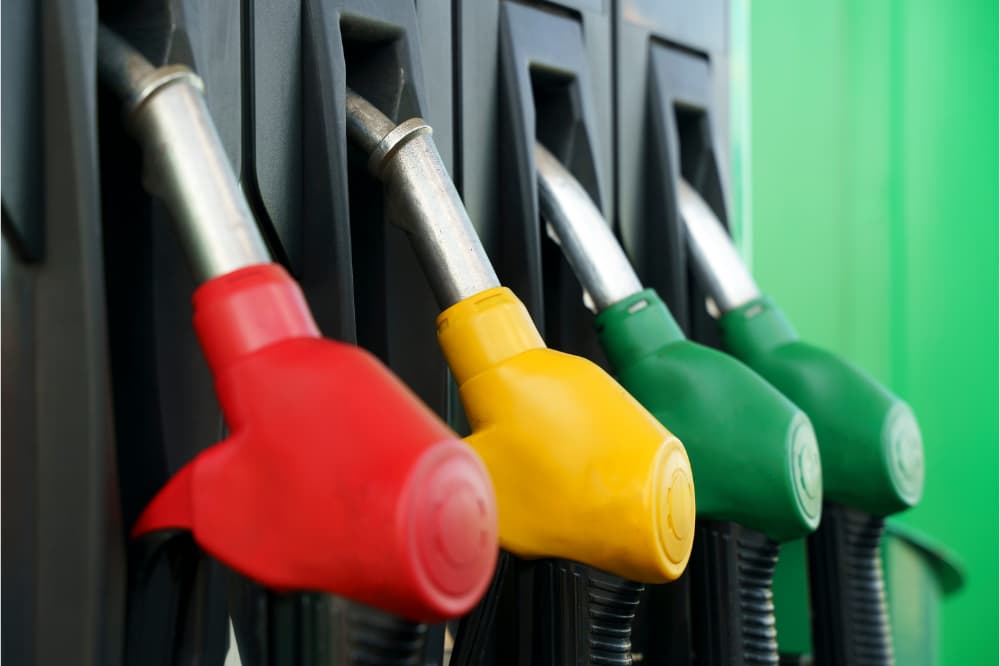Can I Use Red Diesel in a Generator?

When powering generators, traditional diesel fuel is often a popular choice due to its efficiency and widespread availability across the UK. There are various types of diesel fuel available and red diesel has emerged as a popular choice in the fuel industry.
However, a common topic in the fuel industry that has arisen in recent times is whether red diesel is suitable for use in generators. In this blog, we will gain a good understanding of red diesel, and explore its legality, its suitability for generators, and alternative fuel options.
Understanding Red Diesel
Red diesel, often known as off-road diesel or rebated diesel fuel, is another form of regular diesel that has been marked by red dye. The purpose of the dye is to serve as a marker to indicate its intended use in off-road vehicles and equipment such as agricultural machinery, construction equipment, and generators.
Its primary purpose is to differentiate it from regular diesel and to enable the government to detect when the rebated fuel is being illegally used in on-road vehicles.
Legality and Compliance
While using red diesel in generators can be feasible, you must be aware of the legal implications that are associated with red diesel fuel. Many laws strictly regulate the use of red diesel and prevent its use in on-road vehicles or equipment. Breaching these regulations can lead to substantial fines or penalties for yourself or your business.
It is important to ensure at all times when using red diesel in vehicles or equipment it is not being used for on-road usage. Considering generators are used for off-road purposes this makes them highly compatible for being powered by red diesel.
The Banning of Red Diesel
The UK government’s commitment and goal to tackle climate change is one of the primary reasons for the banning of red diesel fuel. Despite being considered a cost-effective fuel, it has been identified as a key contributor to air pollution and carbon dioxide emissions.
The banning of Red Diesel has been effective since April 2022 and prevents the use of red diesel in most sectors and only allows the fuel to be used for off-road purposes. The promotion for the usage of cleaner fuels has been increased by the government to ensure a more sustainable future for the environment.
Therefore, due to the banning of red diesel, it is not permitted for use in generators unless you had a generator that was already operating on red diesel prior to April 2022. Failing to follow the regulations for the banning of red diesel could lead to your business being charged or facing a fine.
Performance and Compatibility
Despite the legal factors that are associated with using red diesel it performs at a similar level to regular diesel when implemented. Its compatibility and performance are virtually identical, making red diesel a suitable and reliable option for heating and power generation. This is beneficial especially if you are located in a rural area or agricultural setting where red diesel is easily accessible.
Quality and Maintenance Considerations
One potential concern when using red diesel to power generators is the overall quality of the fuel. As red diesel is commonly stored in settings where storage conditions may not be optimal, this leaves a risk of potential contamination. This could result in issues such as clogged filters or impacting the overall performance of the generator.
To prevent the potential contamination of your red diesel, regular inspection, maintenance, and high-quality storage conditions are essential to reduce these risks and ensure optimal performance for your generator.
Environmental Impact and Sustainability
While red diesel may be cost-effective and highly compatible, it is important to be aware of its environmental impact. When in use, generators produce a significant amount of carbon emissions which contribute to air pollution and climate change.
If you are looking to have a positive impact on the environment or create an environmentally friendly working environment for your employees, exploring alternative fuels may be something for you to consider.
Alternative or renewable fuel sources for powering generators could provide a more sustainable solution for your business in the long term.
Exploring Alternatives
As well as regular diesel, there are other alternative fuel options for powering generators. Renewable energy sources such as solar or wind power can provide clean and sustainable energy for your business. While alternative fuels can be considered more expensive than red diesel, they offer long-term benefits to the environment and provide a more sustainable future.
Purchase Red Diesel at Pleavin Petroleum
Generators used for backup power in commercial, industrial, or agricultural settings are considered stationary equipment and may qualify for red diesel usage. However, it’s essential to verify the generator’s specifications and intended usage to ensure compliance with the regulations of red diesel usage.
Additionally, consulting with legal or tax professionals can clarify the specific regulations applicable to red diesel usage in generators.
While using red diesel in a generator is technically feasible, it’s essential to consider the legal implications, potential drawbacks, and alternative options available. Compliance with regulations, maintenance, and storage practices are crucial for ensuring the optimal performance and longevity of your generator.
Additionally, exploring alternative fuels or renewable energy sources can contribute to a more sustainable energy future while reducing environmental impact.
If you are looking to purchase red diesel or alternative fuel options for your business look no further than Pleavin Petroleum for excellent 24/7 delivery service across the UK. We want to ensure your business never runs out of fuel no matter what time it is. You can rely on our services and cost-effective fuel solutions to meet your specific needs.

